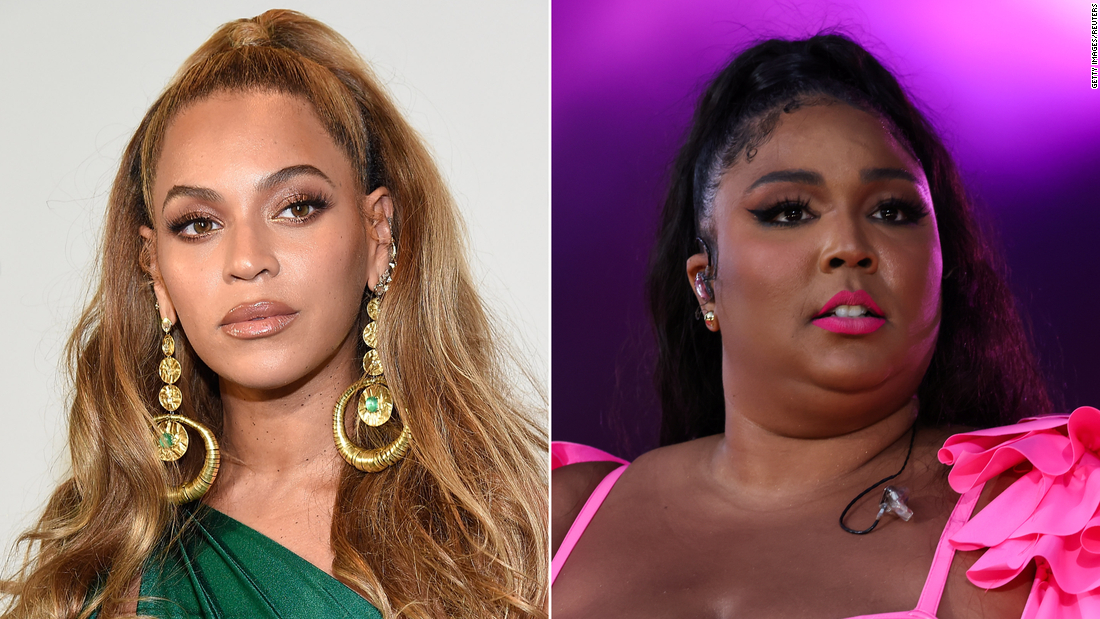What Beyoncé's and Lizzo's lyric modifications say about our present instances
 What Beyoncé's and Lizzo's lyric modifications say about our present instances
[ad_1]
What Beyoncé's and Lizzo's lyric modifications say about our present instances
[ad_1]
The phrase, derived from "spastic," has totally different cultural connotations -- within the US, it is primarily a colloquialism to explain shedding management. It may describe being "within the zone" or "going all out" in African American Vernacular English -- or being in a state of pleasure that's both unfavorable or optimistic, mentioned Nsenga Burton, a cultural critic and professor at Emory College.
However Beyoncé and Lizzo's latest revisions are notable due to the conversations they've sparked across the topic of ableism and the velocity with which critics of the offending lyric had been capable of convey their views. The chatter surrounding these tracks can also be related to bigger discussions round what we anticipate from sure artists, notably Black girls, in addition to how society interprets and preserves leisure and cultural touchstones.
Why track lyrics change -- and what's totally different this time
Lyrics, whether or not they're a part of a canopy track or updates of an artist's personal music, are altered for various causes. Many revisions are tied to language regarding race, gender and sexuality, in addition to faith, mentioned Jocelyn Neal, a professor within the music division on the College of North Carolina at Chapel Hill. Some lyrics are modified to align with the general public's tastes or fashionable instances, whereas others are up to date to higher emphasize an artist's personal views.
What's totally different on the subject of Beyoncé and Lizzo's shortly up to date songs is the quantity of dialog they've generated round ableism, Neal mentioned.
"Ableism hasn't been as a lot part of these conversations (round lyric modifications) prior to now as a lot as it's now, and I believe that could be a change in consciousness and a change in focus that's most likely lengthy overdue," she mentioned, including that almost all of beforehand revised songs "haven't got ableism on the heart of those language modifications."
Additionally notable? The criticisms on this case had been amplified because of social media, which serves as "a way more public platform to offer suggestions to artists," Neal mentioned. In earlier a long time, a listener might have despatched a postcard to complain to a radio station, she famous -- with none assure that their observations can be broadly shared for others to contemplate.
Varied cultural layers make these revisions much less cut-and-dry
Lizzo and Beyoncé's choices to take away "spaz" from their respective songs have been celebrated for essentially the most half, barring some situations the place some have centered on criticizing the truth that it was used within the first place.
However the transfer has additionally sparked arguments over whether or not the phrase's supposed use needs to be thought of extra deeply. Some have voiced concern that the discourse surrounding the artists is an instance of Black girls being held to a unique commonplace.
Society has not pushed again on non-Black artists who've used different ableist phrases like "psycho" or "lame," she famous, nor have these artists in query modified such lyrics as quickly as Lizzo and Beyoncé did. "The difficulty goes past the phrase 'spaz' for me," she wrote.
Burton, for her half, initially appreciated Lizzo's willingness to acknowledge that the offending lyric was a hurtful time period to some and that she re-recorded so shortly. "I believe that takes accountability and a willingness to be educated," she mentioned.
However she seen that only a few individuals had been speaking about how the time period is used within the African American group.
"Individuals are snug policing Black girls's our bodies and language, and that could be a downside, notably while you're coping with artwork," she mentioned. "Significantly while you're coping with two Black girls who're from the USA and are utilizing the time period in a method that Black individuals use it, which has nothing to do with the disabled group, at the very least on this iteration."
Burton added that what one intends with language and the way it's perceived "may be two various things" and that "finally, you need your message to be obtained the way in which it is supposed."
"If it is not being obtained that method and you may change it, then it's best to," she mentioned. "However I am probably not feeling that it is all the time Black girls that acquiesce. We won't make any errors, we won't even use phrases in the way in which our tradition makes use of them with out getting pushback."
The edits are associated to bigger questions on preserving and confronting artwork
"If there's one supply that is controlling the digital model of a track for streaming, and that supply modifications, the typical fan goes to have a tough time having access to that earlier model," mentioned Neal, noting that what we're seeing with the more and more ephemeral nature of some in style music is one thing that is being seen in all types of media and even within the tutorial world.
This has led to better questions round whether or not "persons are allowed to vary issues too shortly" and accountability, she mentioned, and it is one thing those that work in library and data sciences are actively fascinated with.
The flexibility to reply to public suggestions and replace artwork in "actual time" can also be one thing that might current an issue for musicians sometime, Burton mentioned.
"What is the finish? Now you get to come back again and say, 'Hear, I do not like this chorus right here,'" she mentioned. "The place does it finish?"
"Lizzo seized a second to do good on this planet and that is one thing that an artist who has that platform is ready to do," mentioned Neal. "I believe that is thrilling."
Whereas there have been a long time of debate over whether or not lyrics to in style songs matter, Neal mentioned artists on this second -- and even these earlier than them -- are indicating that they do.
The assorted conversations round Beyoncé and Lizzo mark a brand new interval in what we anticipate from and query about in style music. They're additionally half of a bigger custom of questioning and processing the way in which the world round us continues to vary.
"It isn't simply music, it is not simply pop music, it is not excellent now," mentioned Neal. "It is about our personal histories and our instructional processes."
[ad_2]







0 comments: